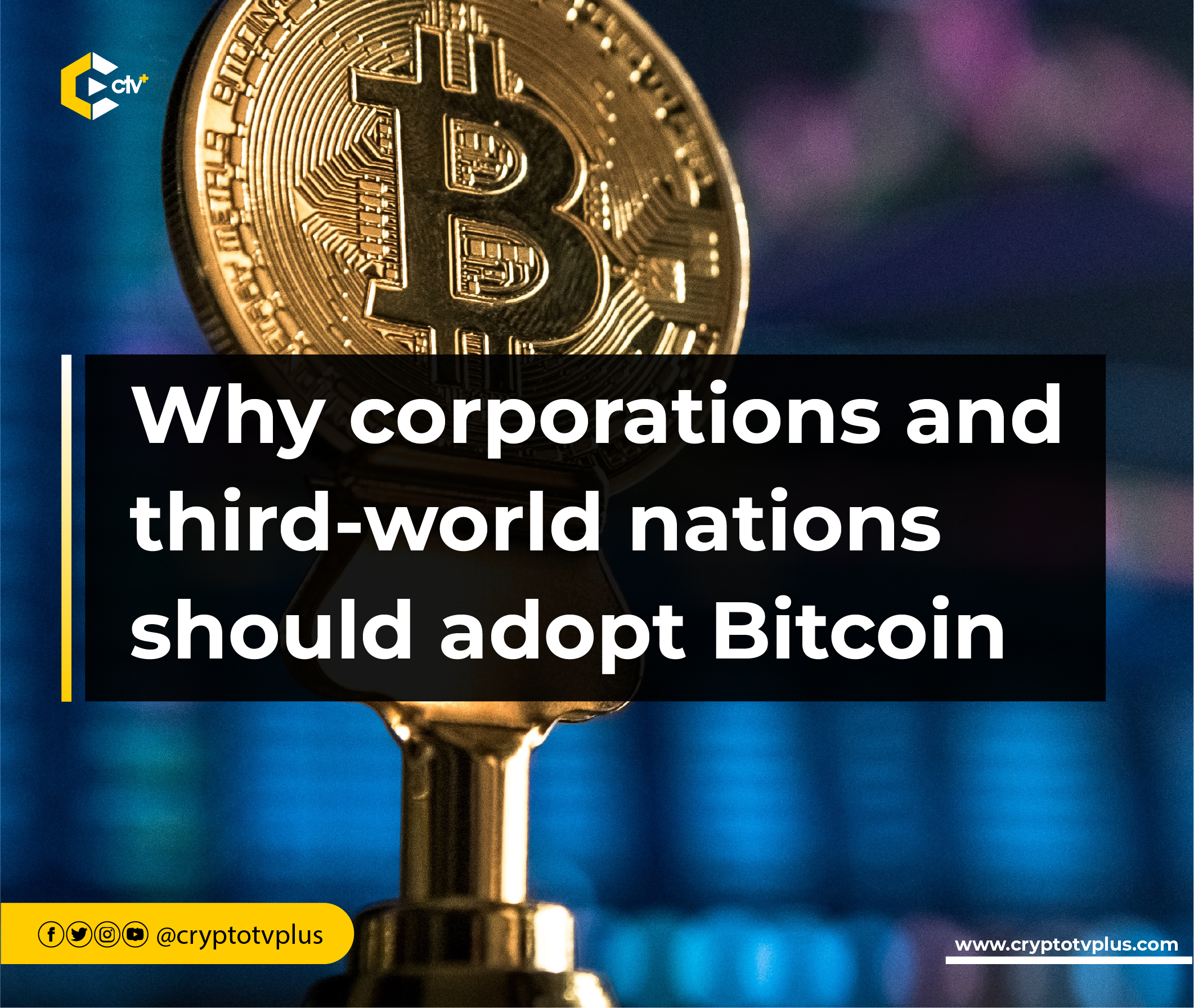FEATURED
Why corporations and third-world nations should adopt Bitcoin

Bitcoin is a digital asset and payment system invented by Satoshi Nakamoto. It is not issued by any central authority, making it immune to government interference or manipulation.
The impact of Bitcoin on the global economy is still being debated, but it has the potential to revolutionize the way we think about money and finance.
Speaking at the Bitcoin and Lightning for Corporation event, Michael Saylor, the former CEO of MicroStrategy, said that the reason corporations should adopt Bitcoin is because it is an edge against inflation. “I think it’s clear we’re living in an inflationary environment and all the currencies in the world are at best pegged to the dollar.”
He added that if the same dollar is becoming weaker over time then the currencies of these nations are even doing so at a faster pace.
He went ahead to divide his stance into two scenarios – one is where a corporation is located in the US or a developed world while the other is a corporation that is located in a third-world nation in South America or Africa.
In the West
Michael revealed that, taking into account the annual ‘rate of expansion of the money supply’ in a place like the US, which has been between 7% and 10% in the last 90 years, while the treasury asset of corporations in the US is yielding 3% annually on the average, then the implication is that these corporations are losing at least half of the value of their assets yearly.
“You’re losing half of your treasury every 10 years under the best of circumstances assuming that there’s a spread of five or six per cent,” he said. Therefore, in the US, corporations that hold Bitcoin would have a higher chance of seeing appreciation in their assets in the same period of time.
If streamlined to the “past two or three years” ago, with an expansion that was between 14% and 20%, the former CEO noted that corporations would have accumulated “a negative real yield of minus 15% in the Western World.”
In third-world nations
The convener of the event explained that the monetary scenario in a third world country is far simpler, see examples in Argentina or Venezuela, or Bolivia. He said that with an inflation rate of about 40%, any corporation with treasuries in such countries truly has nothing as the value of the currency is going down fast leading to a treasury that is headed for zero.
And if these companies want to introduce a swap option to move their assets from their weak currency to a stronger one such as the US dollar, it becomes risky for their banks as they may tend to fail, he said. The reason is that these banks don’t have adequate backing for whatever amount of dollars they claim to have in their treasury.
He added that in a similar manner in which FTX, Silicon Valley Bank, and First Republic Bank failed, if a firm “ends up holding dollars in a fractional Reserve Bank, then when there’s a run on the bank you lose your treasury assets and you’re bankrupt.”
Therefore the reason for Bitcoin for those who are outside the US is that the local currency of such economies is going to zero while the banking system cannot be trusted. While in the US, although corporations have not necessarily lost their deposits in dollars, their treasury asset has been devalued by up to 10% every year in the past century.
Bitcoin acts as a reserve asset in the US as it is projected to have an annual appreciation of between 20% and 40% for a long time.
Read also;
























